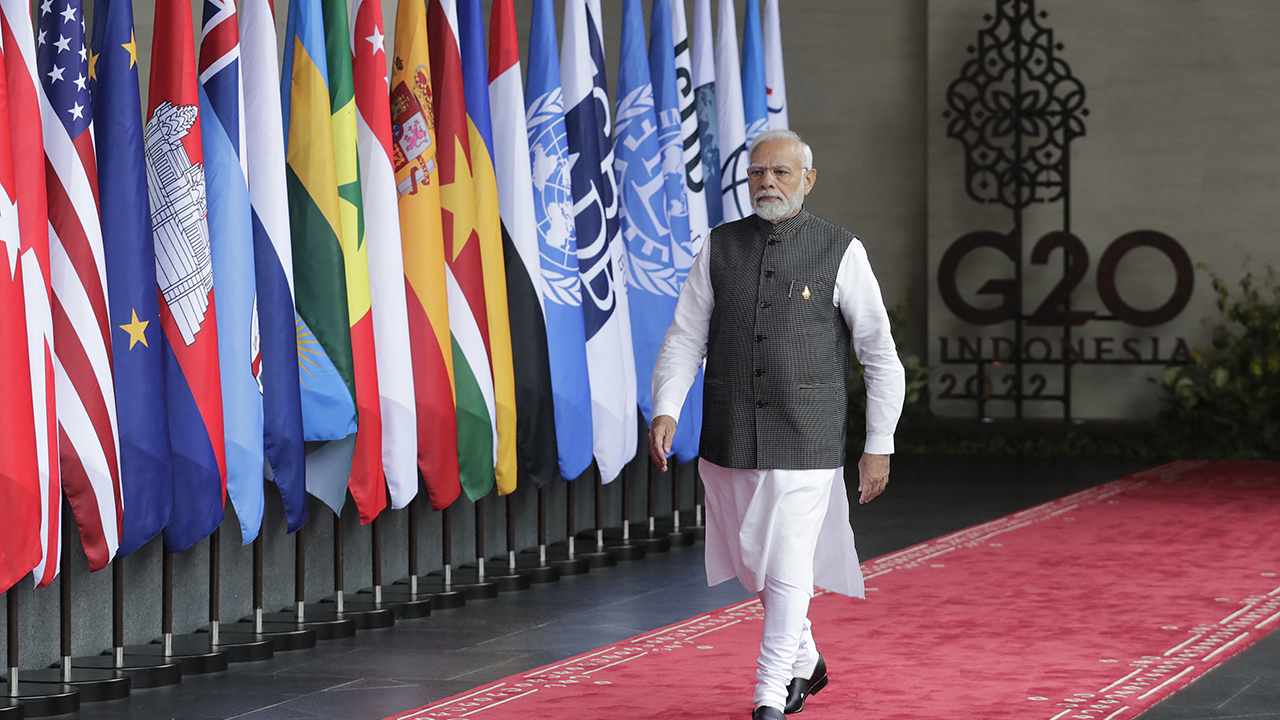Asia’s views hold key to (lack of) climate change accord
Negotiators are gathering in Paris in the first two weeks of December to try to craft an international accord to deal with climate change.
Negotiators are gathering in Paris in the first two weeks of December to try to craft an international accord to deal with climate change.
The three countries on the pope’s itinerary -- Uganda, Kenya and the Central African Republic -- all have sizable Catholic populations. But they also have seen violent clashes in recent years.
In principle, most people around the world support freedom of expression. But there is a fine line between general support for freedom of speech and support for specific forms of expression.
Although many observers have documented a global decline in democratic rights in recent years, people around the world nonetheless embrace fundamental democratic values, including free expression. A new Pew Research Center survey finds that majorities in nearly all 38 nations polled say it is at least somewhat important to live in a country with free […]
Most people in the countries we surveyed – including 11 countries with significant Muslim populations – had negative views of the Islamic State extremist group as of spring.
Australia, Canada, Germany and the UK are among the other countries where there are partisan clashes on climate change issues.
A global median of 54% consider climate change a very serious problem. But there are regional differences on the issues, with the U.S. and China among the least concerned.
The U.S. Virgin Islands is the most "energy intensive" place on Earth -- meaning it uses the most energy per unit of GDP -- while gambling hub Macau is one of the least.
What makes a good life? Usually this question is in the domain of priests, philosophers and metaphysicians, but the OECD sought to find the answers with data.
On some key issues, like the Keystone XL pipeline and the Trans-Pacific Partnership (TPP), supporters of Canada's Liberal Party are less supportive than their Conservative Party predecessors.
Across 12 countries, a median of 40% of adults say they have no confidence in Indian Prime Minister Narendra Modi to do the right thing regarding world affairs. About eight-in-ten Indians have a favorable view of Modi.
Majorities in most countries say China does not take into account the interests of other countries in its foreign policy, and China does not contribute to global peace and stability.
Across 24 countries, large shares have an unfavorable view of Russia and no confidence in Putin to do the right thing regarding world affairs.
Overwhelmingly, people believe the U.S. interferes in the affairs of other countries, but most also believe the U.S. contributes to peace and stability around the world. U.S. President Joe Biden receives mostly positive reviews.












